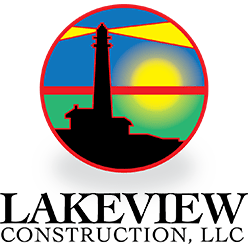In commercial construction, ensuring best plumbing practices is paramount to safe and efficient functioning of the designed structure. As they build, it’s crucial for you to pay utmost attention to the plumbing layout and use appropriate materials.
Overlooking any aspect can lead to serious issues, ranging from water leakage to severe pipe damage. Employing preventive measures can save your project from unanticipated disasters in the long run, ensuring trouble-free operation.
Grading professionals for their services can be a great help. You can make an informed decision by checking out Dan’s reviews at Product Review, helping you pick the right plumbing service for your commercial construction project.
Commercial Plumbing 101
Your construction project requires careful consideration, especially when implementing a commercial plumbing system. Ensuring it’s organized and efficient is critical to the structure’s longevity.
The art of commercial plumbing goes beyond ordinary household fixtures. It tackles more complex systems that manage water supply, waste removal and gas lines in large buildings.
- Understand the complexity of a commercial plumbing system and its maintenance requirements.
- Determine the right materials for pipes and fixtures. Stainless steel or copper are often preferred for their durability.
- Follow strict building codes and safety regulations to ensure the system’s proper installation.
- Hire experienced professionals who can deliver high-quality work which is crucial to avoiding potential plumbing disasters.
Designing an efficient layout for your commercial plumbing system guarantees smooth functioning. More so, it helps prevent potential disruptions in operations due to plumbing issues.
The importance of efficient water use extends beyond economic benefits. It also creates an environmentally-friendly building by reducing water waste and energy usage.
Site Planning and Design
Your commercial plumbing project begins with comprehensive site planning and design. This initial process ensures the system’s reliability and efficient functionality in the long run.
Considering your building’s blueprints, identify the most efficient placements for plumbing lines. This reduces interference with other systems like electrical wiring or ductwork.
You must also have proper plans for water supply and sewage systems. A well-designed plumbing network guarantees easy maintenance and emergency repair access.
| Best Practices | Steps | Benefits |
| Efficient Placement | Consider blueprints for intelligent line placements | Reduces interference with other structures |
| Adequate Solutional Plans | Create water supply & sewage systems plan | Makes maintenance & repairs simple |
| Use of Modern Fixtures | Incorporate usage of modern, eco-friendly fixtures | Saves water, lasts longer and efficient in usage |
| Skillful Installation | Hire skilful professionals for installation | Fewer issues in future; professional assurance |
| Routine Inspection | Setup regular maintenance schedule | Avoids potential leaks or other damages early on |
Seamless incorporation of modern, eco-friendly fixtures to your plumbing system adds up to saving substantial amounts of water and ensuring high durability.
Your installations should be entrusted to competent professionals. Their skillful handiwork minimizes future issues providing an assurance of quality workmanship.
Finally, a routine maintenance schedule is monumental. Regular inspections can find potential leaks or other damage early, allowing for prompt remediation.
Plumbing System Installation
Installing a plumbing system in commercial construction can have unique challenges and requirements. Proper installation techniques are crucial for functionality and longevity.
What are the Best Materials for Plumbing?
Stainless steel, copper, and PEX are considered excellent materials for commercial plumbing due to their durability, flexibility, and resistance to corrosion.
Is Regular Maintenance Necessary?
Yes, regular maintenance helps in early detection of faults which significantly reduces repair costs. Always keep systems running efficiently with timely checks.
Should Professional Plumbers be Considered?
Absolutely! Professional plumbers have the knowledge and experience to handle complex commercial installations and ensure all systems function optimally.
Error Prevention Measures?
Invest in high-quality fixtures, perform routine inspections, and use professional plumbers to prevent common errors during installation.
Why is Proper Ventilation Vital?
Adequate plumbing ventilation balances atmospheric pressure in pipe systems facilitating smooth water flow. It also helps prevent sewer gasses from escaping into your building.
Efficient Water Management
Proper water management is critical in commercial construction. Efficient systems save resources, reduce costs, and contribute to environmental sustainability.
The heart of any robust water management system in commercial buildings is plumbing. Your choices in plumbing supplies and methods determine the efficacy of your system.
- Go Green: Opt for eco-friendly fixtures like low-flow faucets and dual-flush toilets. They drastically reduce water consumption.
- Quality Materials: Invest in high-grade pipes and fittings to prevent leaks and pipe bursts, which can waste significant amounts of water.
- Maintenance Schedule: Regular inspections and maintenance help you spot potential issues early and prevent major water damage.
- Innovative Solutions: Introduce newer technologies like greywater recycling or rainwater harvesting to maximize water efficiency.
To implement these practices, it’s essential to work with knowledgeable professionals who can guide you through the process seamlessly.
Diligence in managing your building’s water usage not only decreases your costs but also pushes towards a more sustainable future.
Compliance and Safety Standards
Highly regulated, commercial construction plumbing must adhere to strict compliance and safety standards. Non-compliance can lead to heavy fines or the cessation of operations.
Your plumbing project benefits from these standards, as they guarantee proper water supply and waste disposal. Equally important are health and environmental considerations.
- Local Plumbing Codes: These govern the design and installation of your plumbing system. It’s crucial to follow them to avoid fines.
- National and International Standards: Industry standards such as the Uniform Plumbing Code (UPC) and International Plumbing Code (IPC) provide additional guidance on best practices.
- Eco-friendly Regulations: With increased environmental concern, many jurisdictions enforce water conservation measures. This can affect fixture selection and installation methods.
- Safety Measures: Equipment like backflow preventers ensure the safety of your building’s water supply, safeguarding against contamination risks.
Prior knowledge of these standards ensures the project flows smoothly from start to finish. Make this part of your initial planning phase.
Hiring licensed professionals conversant with these regulations assures an efficient, compliant plumbing system. Their expertise could save you potential difficulties down the line.
Technology Integration in Plumbing
Your commercial construction project deserves cutting-edge plumbing systems. Technology integration is transforming best practice standards in the industry.
Efficient solutions for water consumption, water heating, and waste management are crucial. Tech-based plumbing contributes immensely to achieving these goals.
- Smart Water Systems: They monitor water usage and provide real time data, enabling you to better manage water consumption.
- Tankless Water Heaters: These advanced heating systems offer quick, energy efficient hot water supply.
- Green Plumbing Solutions: In line with sustainability, these systems focus on conserving water and reducing overall environmental impact.
- Digital Plumbing Networks: These sophisticated systems allow for remote control and monitoring of your complete plumbing system, enhancing efficiency and maintenance.
These advancements shape the future of commercial construction. Engagement with tech-centric plumbing solutions will set your project apart from conventional builds.
Bridging the gap between traditional methods and modern innovation ensures you maintain pace with current operational standards. Embrace technology integration in your commercial plumbing network for effective outcomes.
Maintenance and Upkeep Practices
Effective maintenance deters costly commercial plumbing issues. Regular inspections ensure all components remain in good order, preventing disruptions to your construction project.
Routine Inspections
For optimal functionality, regular plumbing checks are crucial. Proactive examinations assist in identifying potential issues before escalating into severe problems.
An inspection should cover sinks, toilets, drains, and other fixtures. These are typically the places where most plumbing issues originate.
Early Leak Detection
Leaks can cause significant inconveniences and damage. Seemingly small leaks can escalate into bigger problems if not detected and managed promptly.
Deterioration or rust on pipe connections often indicate a leak. Early detection becomes crucial for mitigating further damage.
Avoid Using Harsh Chemicals
While chemicals may seem like quick fixes for clogs, they’re potentially damaging to your commercial plumbing system. They could erode pipes over time.
Instead, consult with professionals. They’ll deploy safer and efficient methods to tackle stubborn clogs in your business’s plumbing system without damaging pipework.
Conclusion: Your Action Plan
With these practices in your toolkit, you’re primed to make informed decisions about commercial construction plumbing. Stay updated with current technologies, safety standards, and effective water management tactics. Get adept at planning, installing, maintaining and more by checking out Dan’s Plumbing Tips.





























